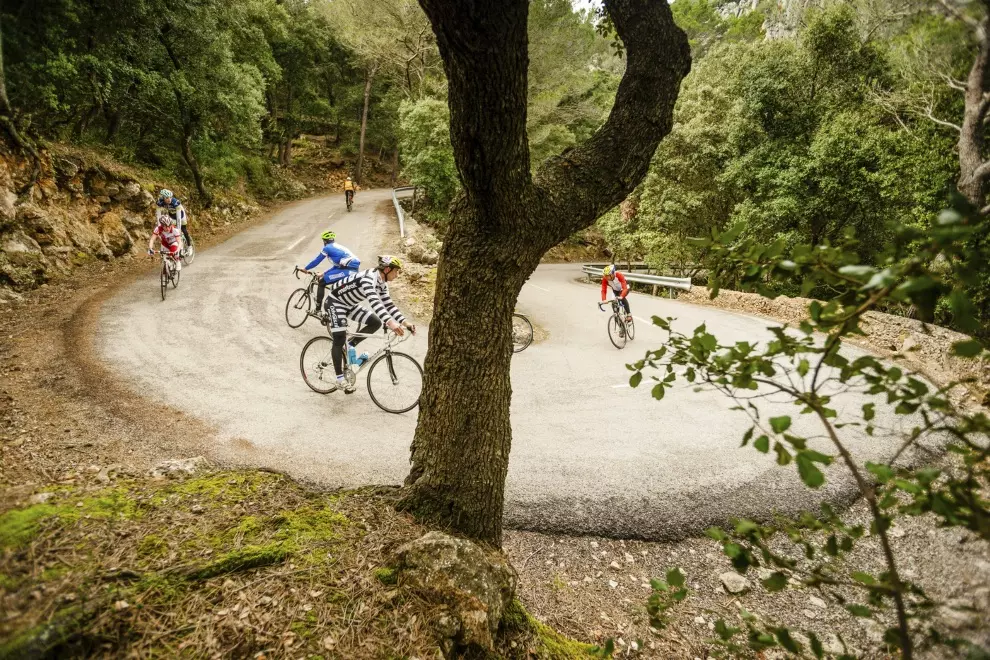Customizing training plan
There are a lot of training plans available online for free. And many of them will get you quite far. But none will compare to custom plan made by an expert tailored to your individual needs. Here are the main three situations where a coach’s input can be invaluable.
Filling the gaps: Every cyclist tends to prefer certain training sessions and riding styles. This can make progress slow. A good coach will do a full battery of tests including VO2 max, lactate threshold, and power output to assess your current fitness. They will also know the most effective ways to improve your weak points. It’s much easier to stomach uncomfortable workouts when you know a coach included them for a good reason.
Overcoming plateaus: Plateaus are notoriously hard to overcome when you’re on your own. A good coach can include enough variety and progressively challenge you in order to keep you motivated and improving.
Peaking for a race: Properly peaking for a race can dramatically elevate your performance but it takes a lot of experience. A good coach can significantly speed that process up for you by prescribing tapering strategies and offering tips from other cyclists that have competed in a given race.

Regular adjustments to your training plan
Everyone that tried to follow a training plan knows that it never goes as planned for long. You either progress faster or slower than expected or you have to deal with life getting in the way. Making improvised decisions on how to compensate for missed training sessions or unexpected time constraints can be tough.
With a coach that regularly reviews your training data and that you can reach out to, you will always have an effective solution ready. The coach can make adjustments to the volume, intensity, and timing of your sessions as well as your recovery days so that you’re always be on the right tracks, given your current circumstances.
Data analysis
Speaking of reviewing training data, this is where a coach can really help you get the most out of all of the tracking you do. It’s one thing to watch how many watts you’re pushing on a climb and another to look at long term trends, analyze and forecast. Let your coach do the hard work, they will synthesize all of the data points to find out how your training should be adjusted or when and how much rest you need. This will free up more time for you to spend training.
Community and networking
Hiring a coach brings other benefits that may not be obvious at first. But many cyclists working with a coach know that they aren’t just getting a training plan but also a connection to the coaches’ cycling network. This could be experts like nutritionists, physiotherapists, and sports psychologists that would be hard to find without a direct recommendation from a trusted coach. It could also be a way to get into local races or group rides that would be near impossible to find without knowing someone.
Choosing the right coach
It’s pretty clear that the right coach can level up your cycling. But not every coach will be the right coach for you. What can you do to find one that will be worth working with long term?
Ask for references: It may be a bold move, but consider asking a prospective coach for references from their students. If possible, reach out to them directly. This is the best way to find out in advance what weaknesses the coach has and what it might be like to work with them.
Communication style that matches your needs: Effective communication is key in any coaching relationship. Find out how often does the coach offer feedback? What channels do they use, email, phone, in-person? How easily can they be reached in case of urgent questions?
Trial Period: Coaching is a lot about personal interaction and chemistry. If possible, start with a trial period to see how well you connect before you make a long-term commitment.
There are many more considerations when looking for a coach but a lot of them depend on your preferences. Looking through online reviews of various coaching sites, there are several distinct categories of things that cyclists value in professional coaches. You can go over a summary of these here and see which resonate with you. Definitely bring that up in the initial talks with your future coach, it will help you judge who may be the right fit for you.
Encouragement: Coaches who motivate by providing consistent encouragement to help athletes stay focused and positive.
Accountability and feedback: Coaches who motivate by maintaining a sense of accountability and offer both positive and constructive feedback.
Holistic approach: Coaches who address all aspects of training including physical preparation, nutrition, gear, and mental strategy.
Personal connection and support: A personal touch in coaching, where coaches build a genuine relationship and offer emotional support.
Technical and tactical expertise: Providing detailed, knowledgeable advice on technique, race strategies, and equipment choices helps students gain confidence and improve performance.




